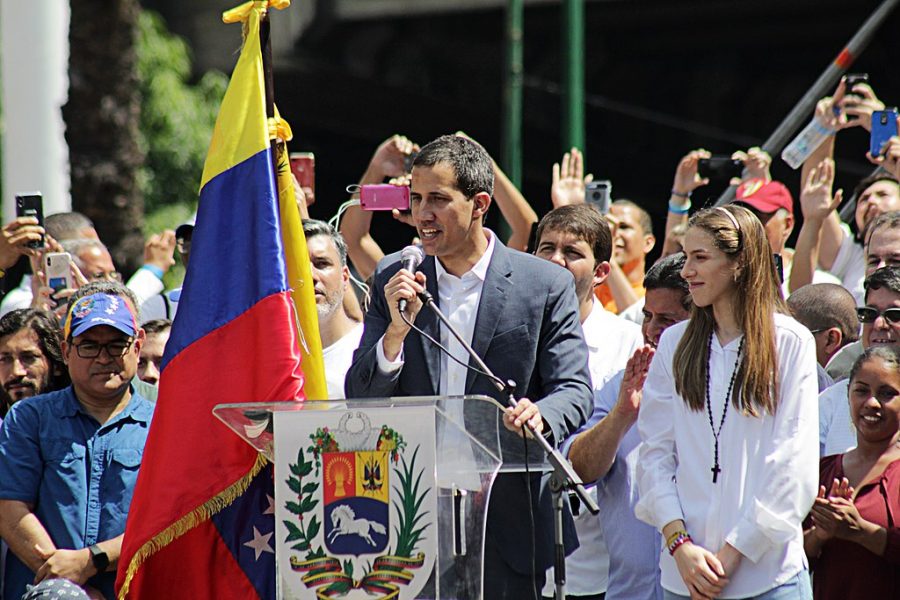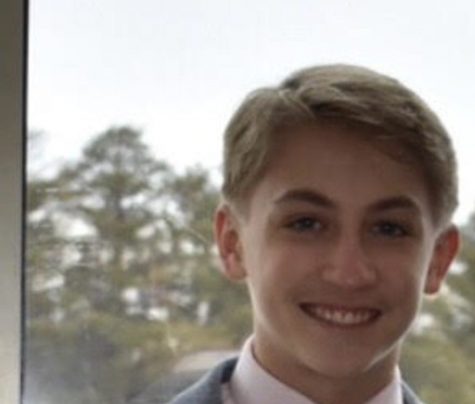Venezuelan Crisis
Photo via Wikimedia Creative Commons License
Juan Guaido speaks to protestors in Caracas. The country has been thrown into turmoil over recent elections.
March 12, 2019
Venezuela is in the midst of economic and political upheaval. Under the “populist” policies of President Hugo Chavez, and the total mismanagement of money by succeeding President Nicolas Maduro, Venezuela has been forced to announce an “economic war.”
A decline in oil prices, which supports 95 % of the Venezuelan economy, spelled out disaster in the future. The bigger problem, however, is the massive inflation Venezuela is trying to combat. As of November 2018, the inflation rate was 1,300,000%. Prices have been raised so exorbitantly high that the citizens of Venezuela cannot afford the basic items one requires to survive. Many citizens are starving, and are living in extreme poverty.
This directly leads into the humanitarian crisis of fleeing migrants looking for a new country to start a new life. Brazil had been taking in thousands of Venezuelans, until President Nicolas Maduro closed the border, stating: “there is no national emergency.” Colombia and other South American countries also are being forced to shoulder the burden of hundreds of thousands of these migrants. These migrants sacrifice their old lives in search of a livable one. The decision to embark on a dangerous international trip is a hard one, but 7% of Venezuela’s population has made it.
The biggest, and most immediate, issue Venezuela must solve first is establishing political leadership. Incumbent President Nicolas Maduro is facing opposition from the leader of the legislature Juan Guaido. Maduro won a second term in May 2018 in an election many boycotted. Guaido then declared himself acting president of Venezuela on January 23.
The US, along with the European Union and most Latin American countries, moved to recognize Guaido as the rightful leader of Venezuela. There is a total impasse across the country, and nothing will get better when these two political rivals engage in this fight. The longer the political stalemate continues, the more Venezuelans will starve, and the higher the prices will raise.
There are many possible solutions the Venezuelans can work on to bring their country back from the brink of destruction. They need to diversify their economy away from oil to be better protected from price declines.
The government also needs to establish an official rate of change between the bolivar and the US dollar, somewhere in the range of 150 to 200 bolivares equals one US dollar. These measures will prevent further inflation as the government writes legislation.
Furthermore, the creation of a food stamp-like program is vital to guarantee that the Venezuelans have access to cheap, inflation-protected food during this crisis.
Obviously, a universal decision on who the president is retains importance. These are troubling times in Venezuela, but there is hope and possible solutions in the future.


